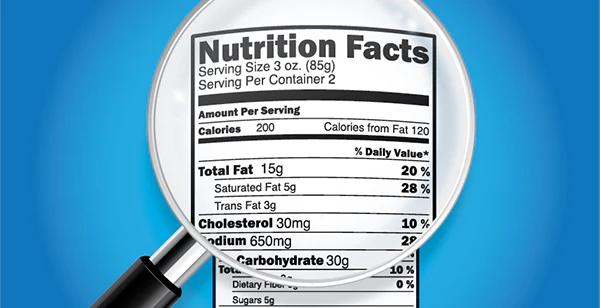Is nighttime eating an issue of willpower or does this syndrome really exist?
It’s important to recognize that nighttime eating patterns are not always solely a matter of willpower. Night Eating Syndrome (NES) is a legitimate medical condition that goes beyond simple overeating during the night. Individuals with NES may experience a disrupted circadian rhythm, i.e. sleeping pattern that leads to an abnormal increase in appetite and food intake during late hours, often paired with difficulty eating during the daytime.
How do NES cause weight gain?
NES can have a profound impact on weight management due to excessive calorie intake during nighttime. The body is not expending energy during sleep to burn off the consumed calories. The consumption of high-calorie foods at irregular hours disrupts the body’s natural metabolism.
Moreover, individuals with NES may experience emotional distress and guilt related to their eating behaviours, further exacerbating the disorder.
If NES is not identified it makes weight loss and maintenance very difficult resulting in higher risks of health problems like diabetes, and high blood pressure heart disease and sleep apnea.
NES can take a toll on an individual’s physical and emotional well-being. Feelings of guilt, shame, and a lack of control over eating habits often accompany this disorder, leading to further emotional distress. Sleep disturbances and fatigue can also occur due to nighttime awakenings for eating, impacting the overall quality of life and in tern weight gain.
How to identify NES (Night Eating Syndrome)?
Identifying NES involves looking for signs such as:
- feelings of anxiety or stress during the night
- difficulty falling asleep or staying asleep without eating
- frequent episodes of nighttime eating
- wake up at least once during the night to eat
- lack of appetite in the morning
- sense of loss of control over eating at night
- at least 25% or more of total daily calories are consumed after dinner
Is Emotional Eating the Same as Night Eating?
While both Emotional Eating and Night Eating Syndrome involve eating as a response to emotions, they differ in their patterns and timing. Emotional Eating is characterized by using food as a way to cope with emotions like sadness, boredom or tiredness throughout the day. On the other hand, NES specifically pertains to the pattern of consuming a significant portion of daily calories during the evening and nighttime hours, often waking up to eat during the night. It is usually after nighttime meals. Both disorders can impact weight and overall well-being, but their triggers and patterns differ. That is why professional help is required to identify and then treat it accordingly.
Can medications help in NES?
While therapy and lifestyle changes are the primary interventions for NES, in some cases, medication may be considered to assist in managing the disorder. Medications that target mood, appetite and craving regulation may be prescribed by MD. “Craving and Wanting” is a biological drive and it is influenced by our environmental factors. Individuals who suffer from NES find that when they use medication they have better control over their permission thoughts that make them a controless eater. Medications make learning behaviour and coping strategies easier as the hormonal driver is controlled and emotions and craving wave of permission thought that makes them uncontrol eaters.
How Modest Medix can help NES (Night Eating Syndrome)?
Overcoming Night Eating Syndrome involves a multi-faceted approach that addresses both the physical and emotional aspects of the disorder. Consulting a Medical Doctor (MD) that identifies NES from other eating disorders, a Registered Dietician (RD) who supervises the nutritional part, and a therapist who oversees the behaviour aspect can be immensely helpful in developing a personalized treatment plan.
At Modest Medix:
- Medical Doctor (MD): Initial Assessment will identify Emotional Eating (Hedonic Hinger), Night Eating Syndrome (NES), and Binge Eating Disorder (BED) from another type of obesity (Gut Hungery, Slow Burners) as these require tailored lifestyle management along with medications if required
- Registered Dieticians (RD):
- Creates a structured and tailored meal plan for you that will help regulate your eating patterns, distribute calories more evenly throughout the day, and address any nutritional deficiencies.
- They provide guidance, support, and strategies to establish healthier eating habits, manage cravings, and restore a balanced relationship with food and sleep.
- The digital app is helpful in organizing and is time efficient for the individuals and they are aware of exactly what they will be eating.
Remember, NES is a real syndrome that deserves proper attention and professional help for effective weight loss and weight maintenance.
If you suspect you or someone you know may be experiencing NES or emotional eating, seeking professional guidance is essential for appropriate diagnosis and developing a personalized treatment plan.
Call or Email us
Key Message
- NES is true and it’s not in your head
- NES interrupts sleep and eating patterns
- Learn right behaviour
- Take scheduled balanced meals throughout the day
- Seek Professional Help











